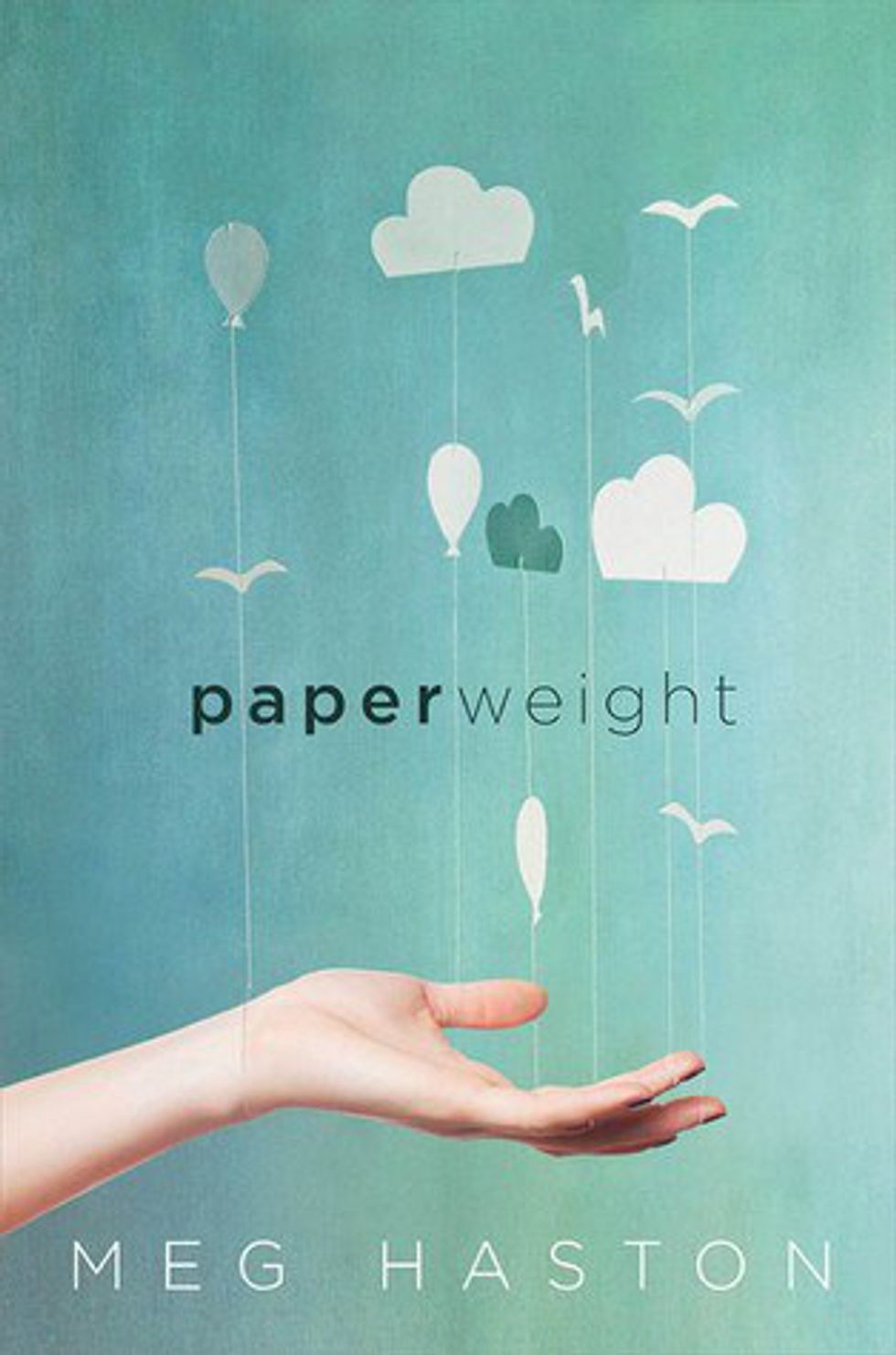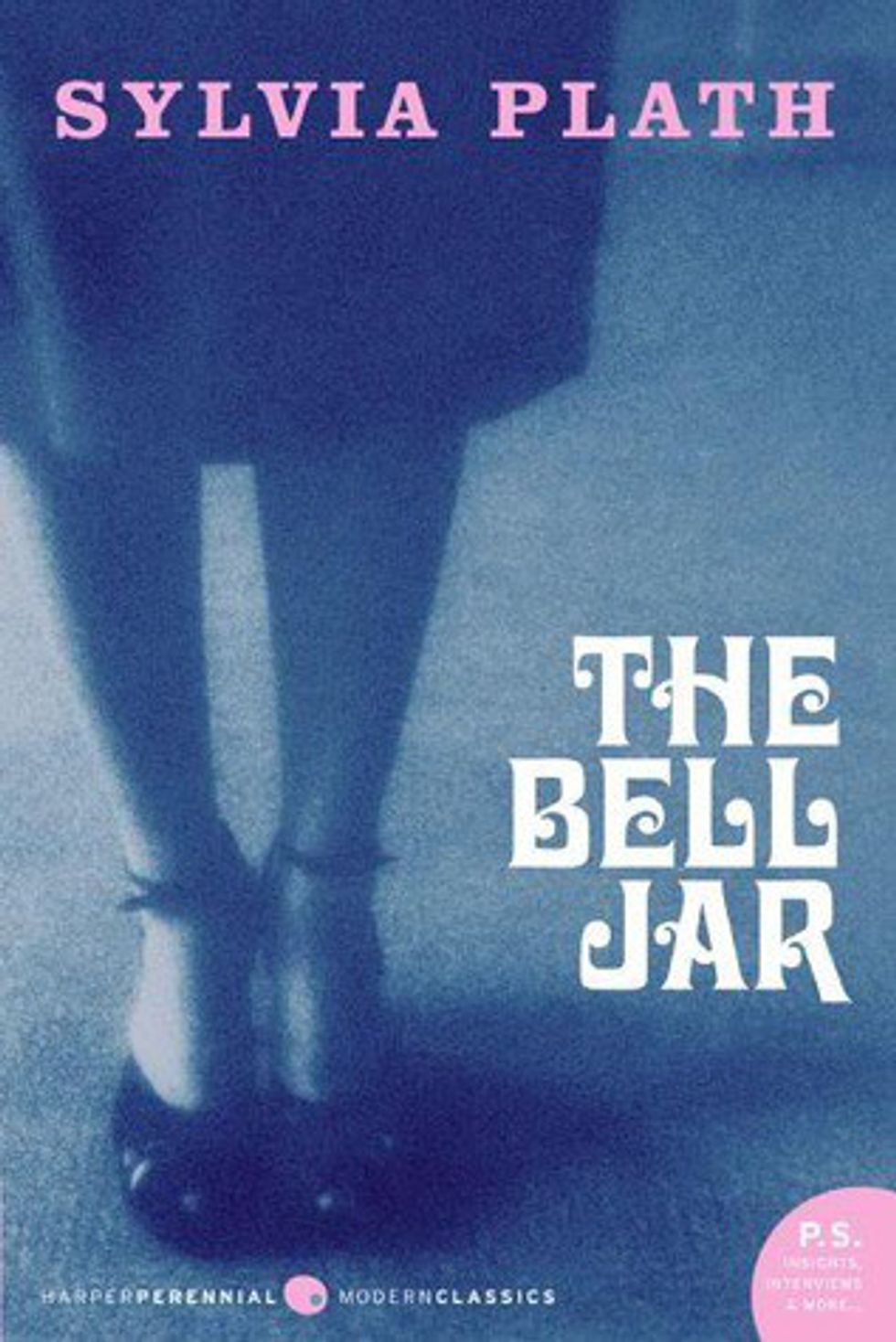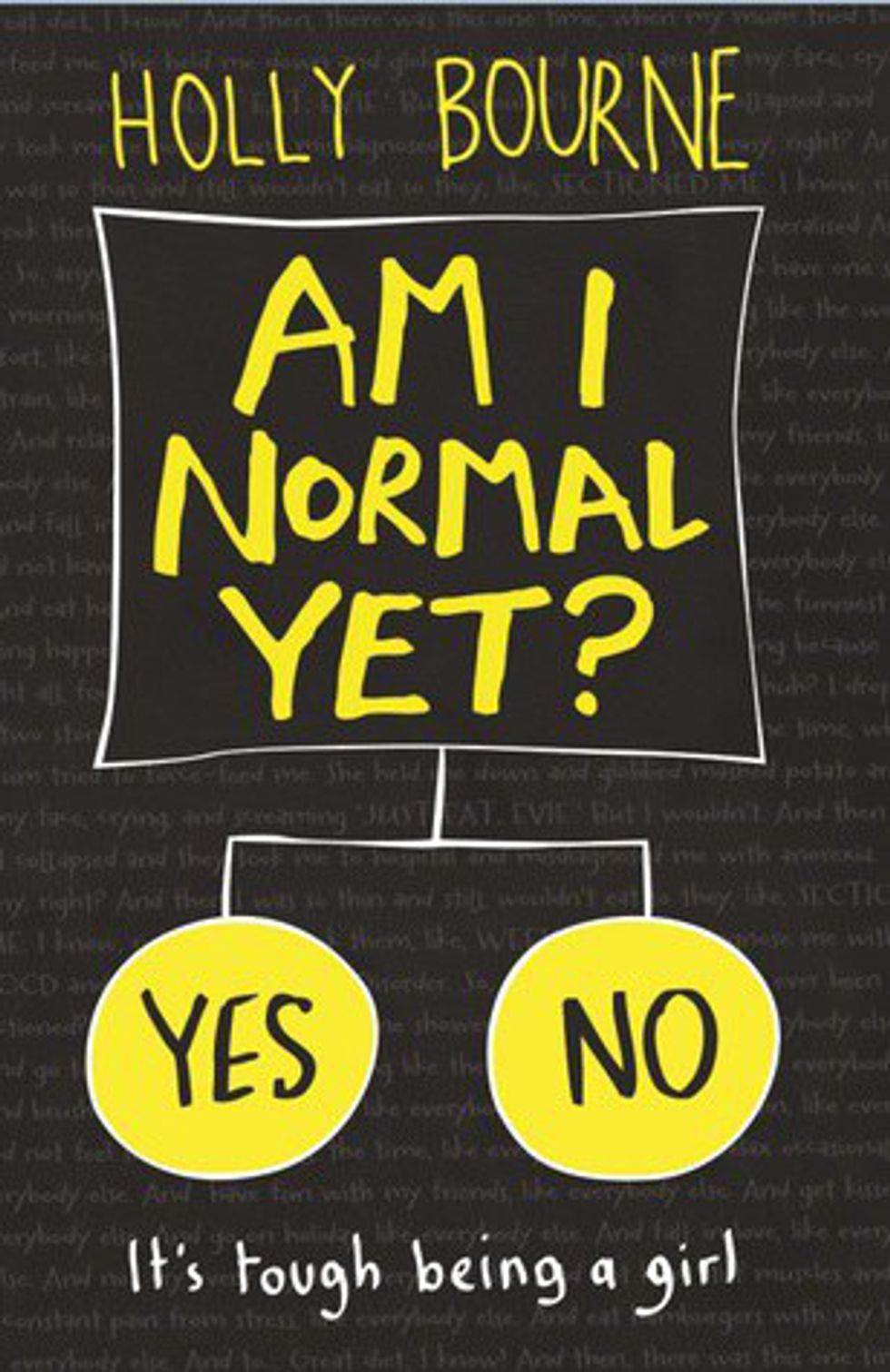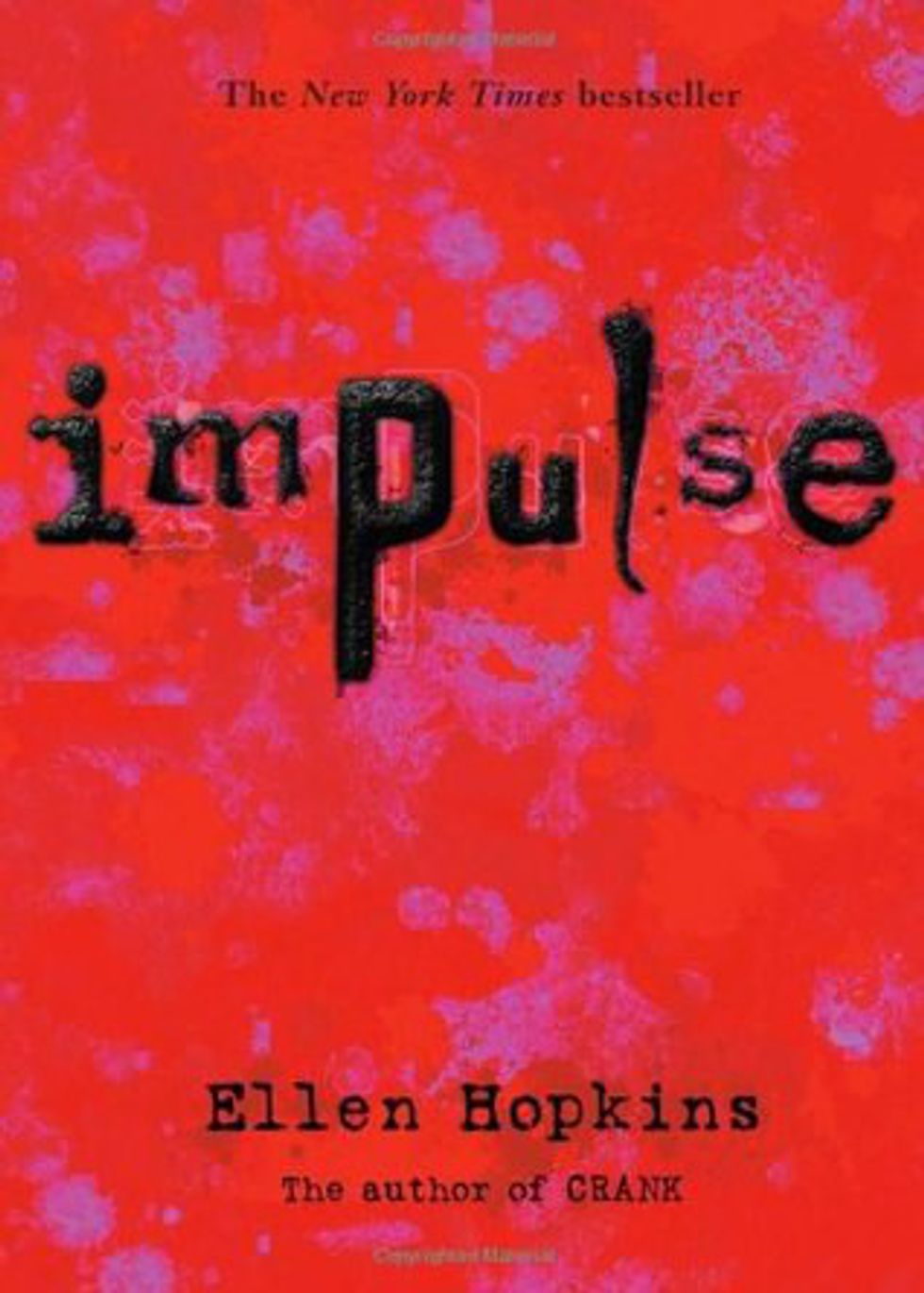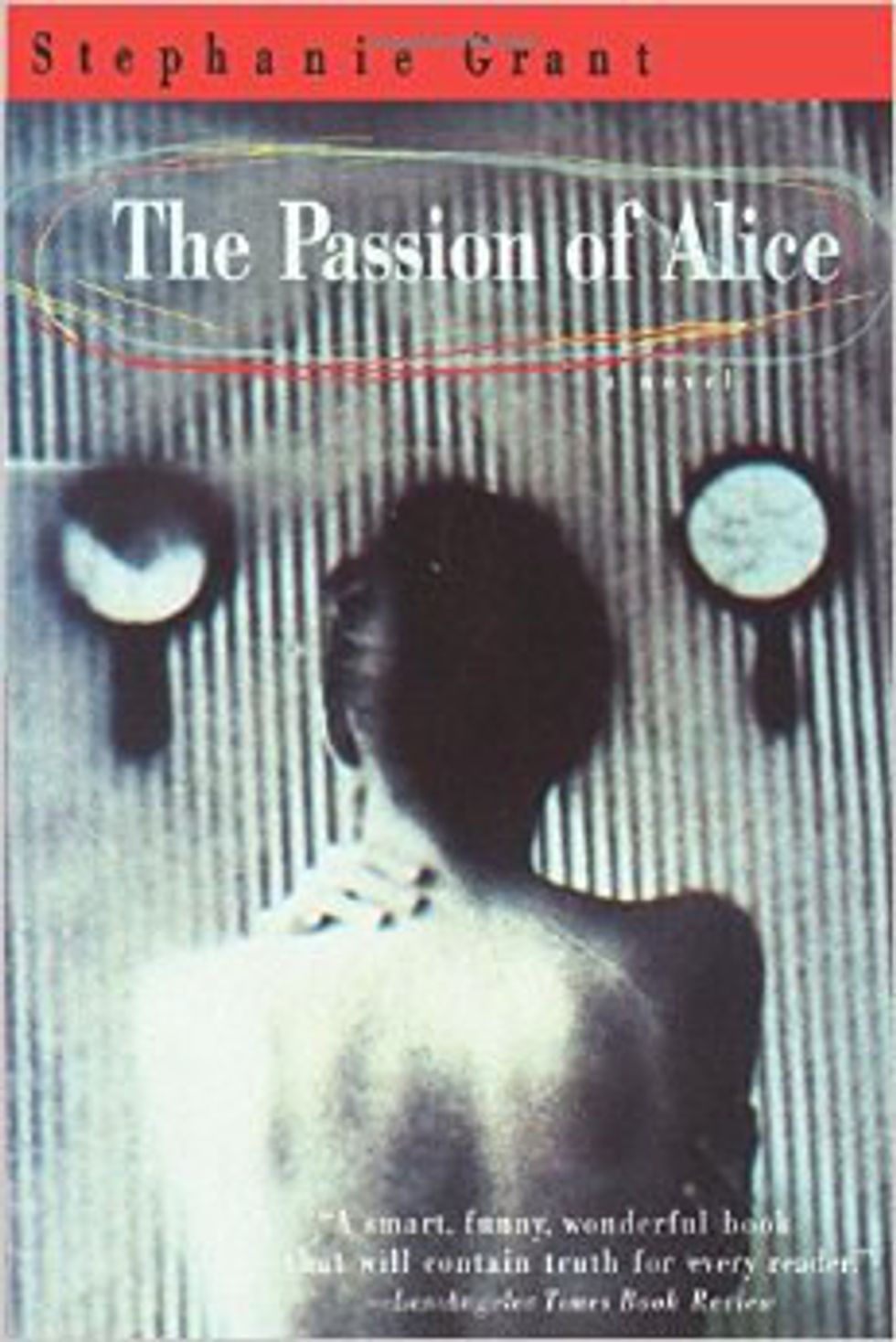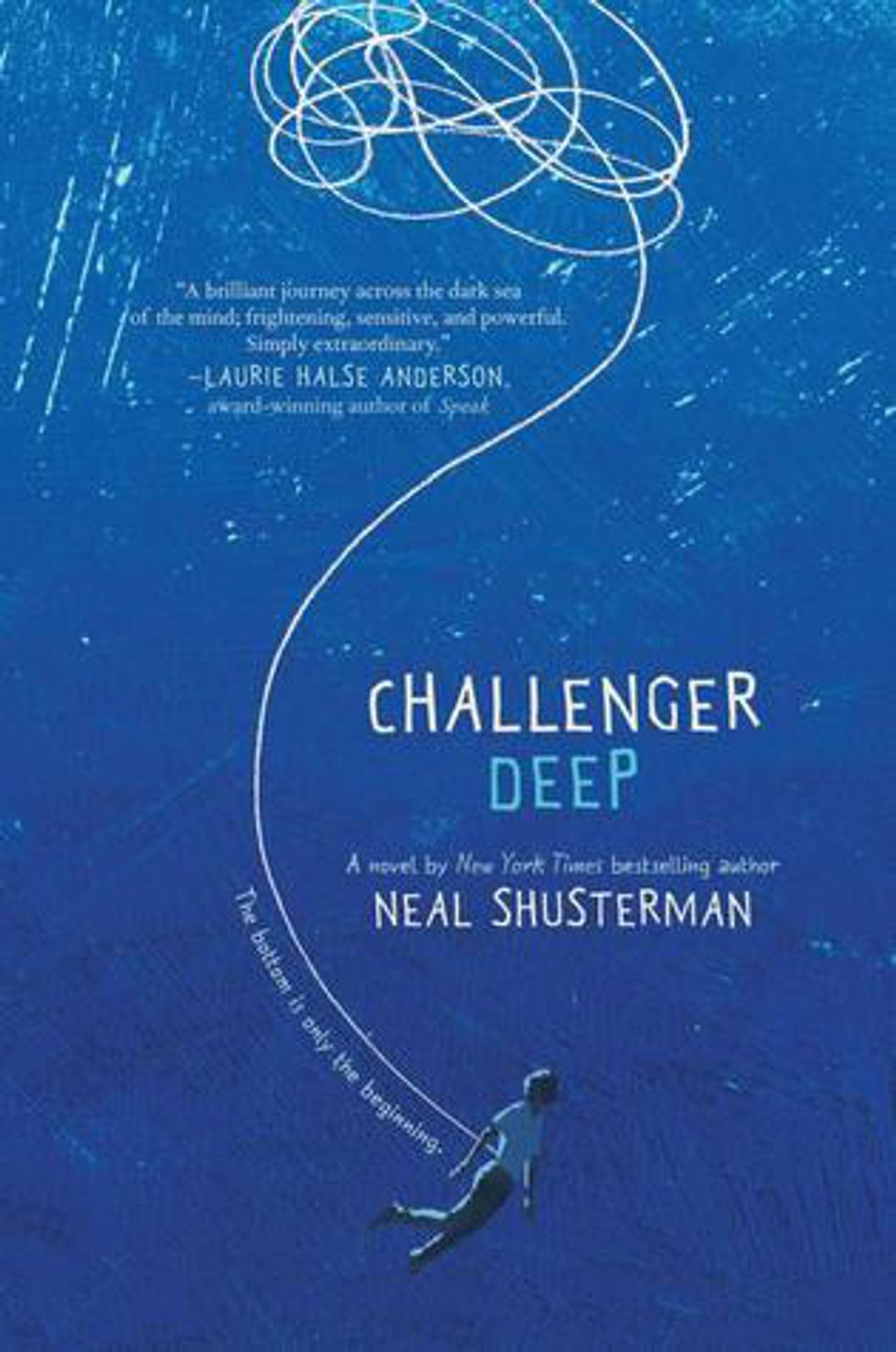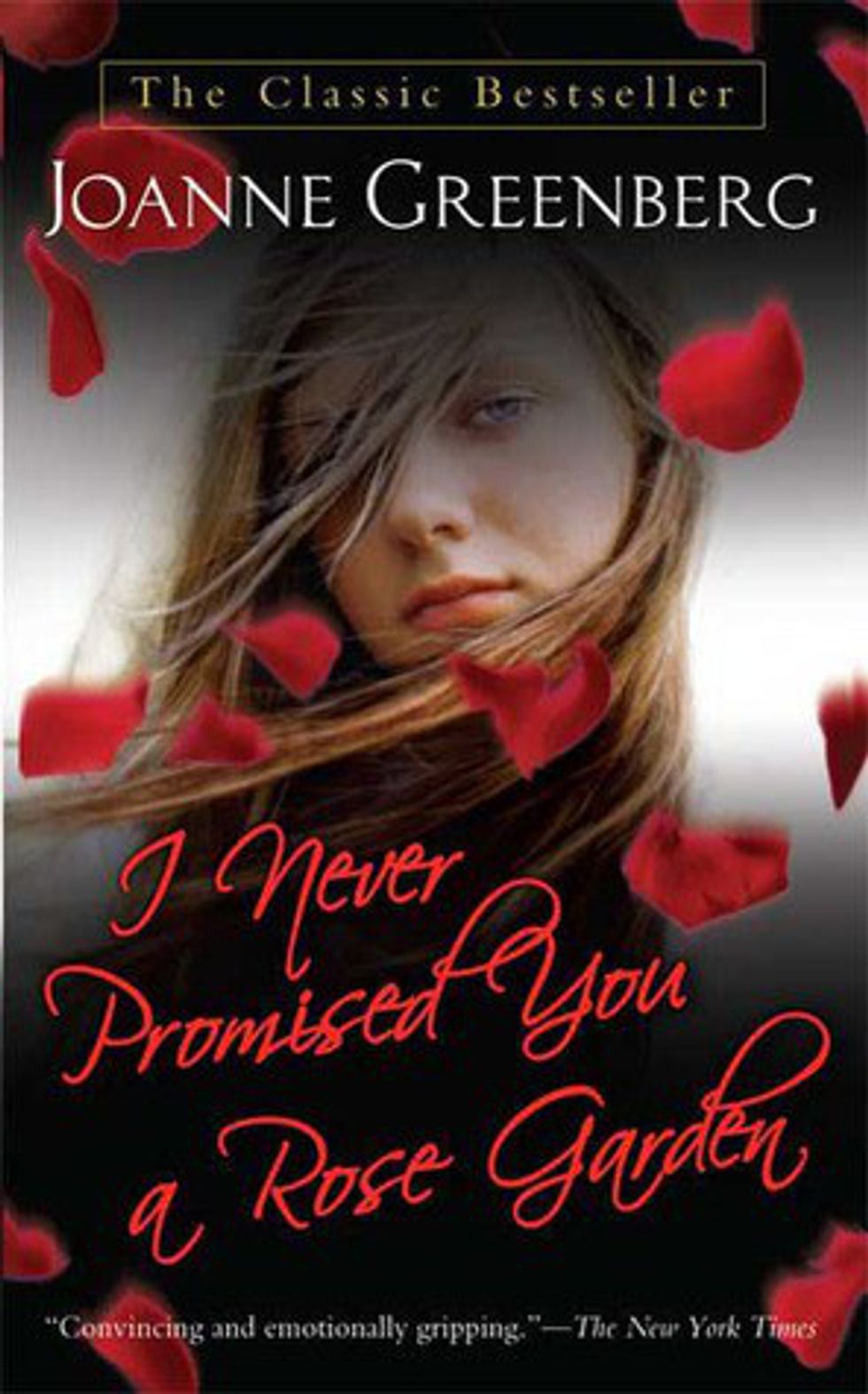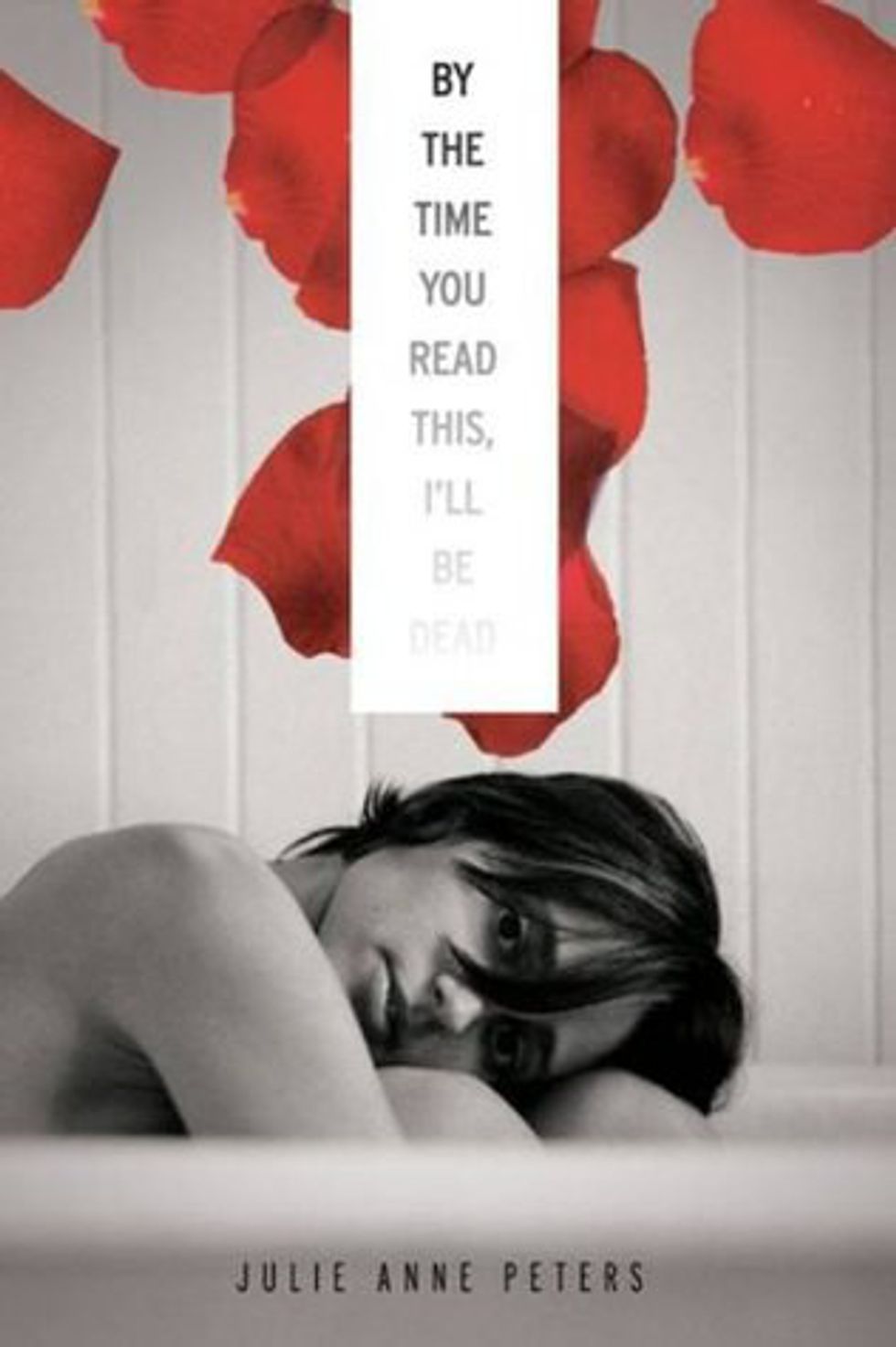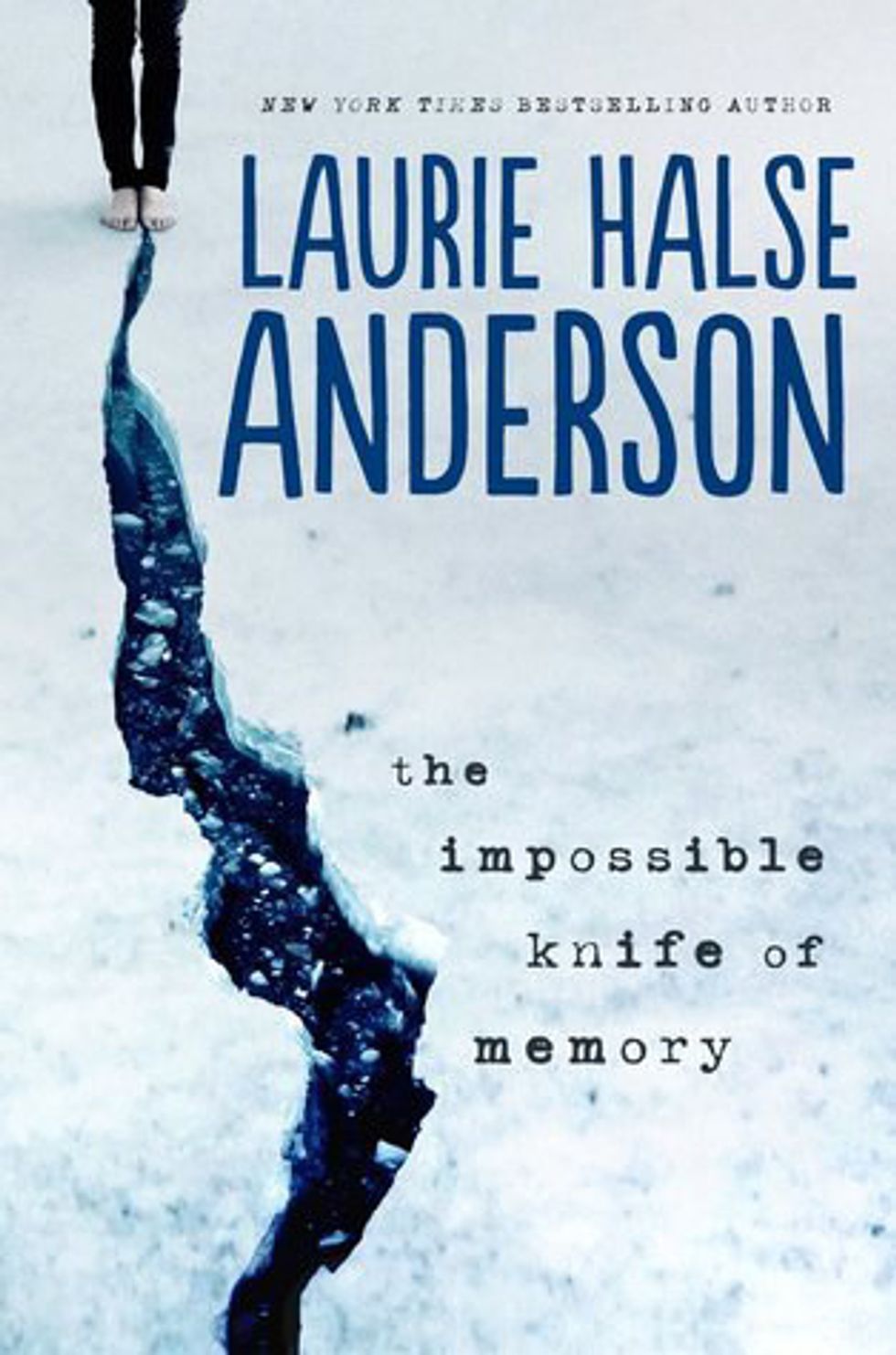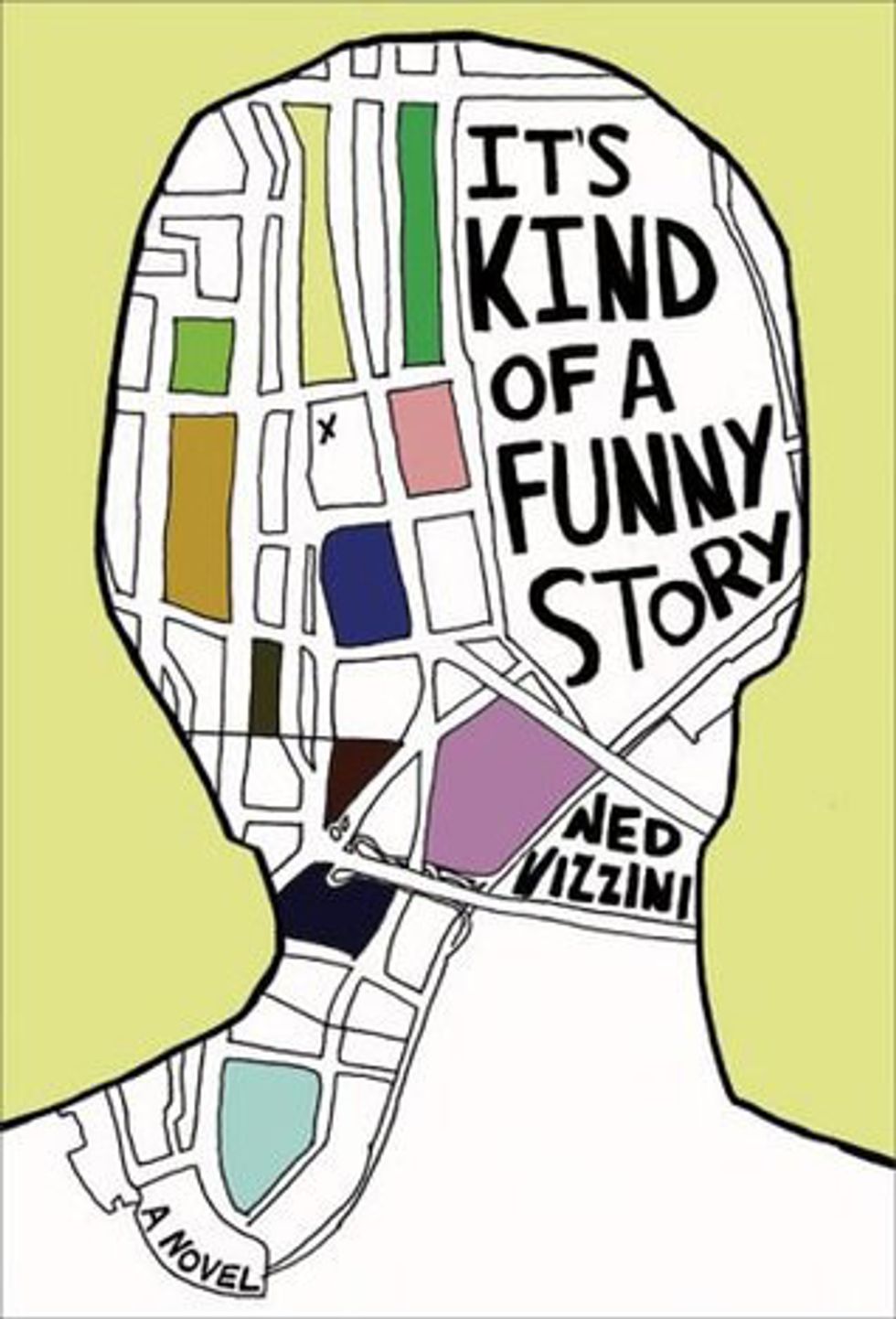Ever since picking up Augusten Burroughs' "Running With Scissors," a good five years ago, memoirs have been my jam as one of my favorite literary genres of choice, but more specifically, those documenting experience with mental illness.
Unfortunately, when it comes to fictional accounts, they often don't hit the mark in terms of accurate portrayal. Mental illness can be subjective in a person's experience with it, but there are times you literally just wonder what general psychology textbook the authors picked up and promptly closed in satisfaction after skimming a few pages for "research." Depending on how far they miss the mark, reading over-romanticized or just plain awful depictions of mental health issues can be frustrating. Cringing every couple pages, it's not just something that can be, or should be, blown off. There's actual danger and harmful consequences to popularizing inaccurate portrayals of difficult, stigmatized-as-is issues by ways of the impression it leaves on those suffering from mental illness, as well as those who will otherwise internalize what they read as truth.
Realistic depictions that don't overly-romanticize or spread misinformation about debilitating issues that devastate individuals every single day are needed and necessary in works of fiction that aim to include them.
This is a list of books, in no particular order, that I've either read and recommend, or those recommended by others that I've included to create a less limited compilation.
(Note: I've placed a * next to the ones I haven't read, and therefore can't vouch for, myself).
Paperweight - Meg Haston
Mental Illnesses: Eating Disorder, Post Traumatic Stress Disorder
"Paperweight" is an excellent example to support how an eating disorder can primarily develop from a traumatic event separate from food and body image insecurities. In the case of Stevie, her eating disorder is a manifestation of survivor's guilt and depression.
The book follows Stevie as she's admitted into a residential treatment center for her eating disorder. Another notable detail of the story is that Stevie is described as being of "normal" weight according to BMI standards, which refutes the misleading stereotype that those suffering from an eating disorder, especially symptoms of anorexia, always appear stick-thin—a stereotype that does a lot of harm in terms of people not being taken seriously by both medical professionals and loved ones based on their weight.
As far as eating disorder fiction goes, "Paperweight" has several things going for it.
The Bell Jar - Sylvia Plath
Mental Illness: Depression
A classic, but not necessarily plot-driven, "The Bell Jar" explores the human psyche and the mental break of protagonist, Esther Greenwood, who appears on the outside to have very much going for her. Although the novel was first published in 1963, the emotional break of Esther, the experience, is a timeless one that shares similarities to the way some individuals today struggle with depression. The author and poet, Sylvia Plath, struggled with mental illness herself and unfortunately, just a month after "The Bell Jar" was published, she committed suicide.
Am I Normal Yet? - Holly Bourne
Mental Illness: Obsessive-Compulsive Disorder
One of my favorites on this list, "Am I Normal Yet?" follows UK teen Evie as she navigates college life with severe Obsessive Compulsive Disorder. Bourne delves so deep into the struggles many people don't even consider when they think of OCD, as they rearrange a pencil and laugh while explaining that they're "just a little OCD!"
In Evie's case, her OCD is debilitating to the degree that it negatively impacted every aspect of her life. Throughout the book she works with a therapist to learn how to cope with her obsessive compulsive urges. Perhaps most important is the depiction of how difficult it makes social interaction, both with strangers and friends. There's a stigma and a feeling of shame when it comes to having a mental illness, but those symptoms that are uglier than the occasional tears and lethargy are especially stigmatized—the symptoms that those who aren't struggling don't want to see. Evie learns how to trust and open up to friends, and how to make the choices we have to for our health.
Impulse - Ellen Hopkins
Mental Illness: Depression/Suicidality
"Impulse," as I've recommended previously, takes place in a psychiatric hospital called Aspen Springs, where three teenagers are admitted following each's suicide attempt. The book is written from all three of the teens' perspectives, which offers three very unique story-lines. This book has always been one I've recommended because of how evidently the author works to honor and accurately depict the struggles of those living with mental illness. Readers are exposed to the gritty, dark, but still humanizing experience of living with depression and a suicidal mind through Connor, Vanessa and Tony, who all manage to become friends within the hospital walls.
The Passion of Alice - Stephanie Grant
Mental Illness: Eating disorders (anorexia, bulimia, binge eating disorder)
There are mixed views on this book—some like it, some don't. I didn't love the book, but I thought it stood out from some other fiction I've read surrounding eating disorders. The underlying triggers of twenty-five-year-old Alice's eating disorder are explored within the pages, including her need for control. There's no immediate recovery once she she is admitted into a hospital in a precarious state of health and spends time there; there's no pretense of it being an easy process—getting better, that is. There are reality checks not unlike nonfictional circumstances where Alice witnesses the death of someone who suffers from the same illness she does, and how that affects a person who already struggles with using self-destructive behaviors to cope with difficult emotions.
*Challenger Deep - Neal Shusterman
Mental Illness: Schizophrenia
High school student, Caden, is described as brilliant, but what isn't as apparent on the outside is that he also suffers from schizophrenia—an illness that still carries a hefty amount of stigma because of some of its more frightening symptoms. This book is still on my to-read list, but I've heard only good things about it, especially in its faithful depiction of a teen case of schizophrenia.
An online reviewer says, "Through Caden, Shusterman shows the delusions and doubts and episodes of emotional dysregulation that come with schizoaffective disorder, and he does so in a way that advances the plot while honoring the pain that pervades Caden's struggle."
I Never Promised You a Rose Garden - Joanne Greenberg
Mental Illness: Schizophrenia
The way this book is written can be confusing in that a lot of it seems to be the narrative of Deborah within her delusions as a sixteen-year-old suffering from schizophrenia. The novel is older than some others here, published in 1964, but it really is beautifully written. One advantage I think is gained from the style is that readers can gain a small understanding of just how real delusions and hallucinations can be to someone who genuinely cannot separate reality from unreality. As someone who developed schizophrenia herself at a young age and was admitted into a mental institution, the author, who actually published the novel under the pen name Hannah Green, has a lot of insight to share.
The book also contains one of my favorite all-time quotes:
"I never promised you a rose garden. I never promised you perfect justice .... and I never promised you peace or happiness .... The only reality I offer is challenge, and being well is being free to accept it or not at whatever level you are capable. I never promise lies, and the rose-garden world of perfection is a lie...and a bore, too!"
By the Time You Read This I'll Be Dead - Julie Anne Peters
Mental Illness: Depression
I've read this several times and something about it is always intriguing to me. The title is what initially caught me when I first read it years ago. The book begins some time after main character Daelyn has attempted suicide. And you quickly learn she was not unscathed. After drinking bleach, she is unable to speak and has her food blended for her by her parents, who also have her on a DIY suicide watch. Early on in the book, Daelyn finds a website for suicidal individuals that gives them the chance to enter a "Date of Determination," or the day they will commit suicide, and contains a forum to discuss the most "effective" methods. This could be paralleled to darker websites on the real worldwide web.
But through this book you get a really interesting look of the aftermath following a suicide attempt, and how things are never a quick fix. The ending is left ambiguous, which can be both frustrating and thought-provoking as it gives readers the opportunity to imagine their own ending for Daelyn.
*The Yellow Wallpaper - Charlotte Perkins Gilman
Mental Illness: Postpartum Depression
As a general summary, "The Yellow Wallpaper" is described as the chronicle of a woman's "descent into madness." It is a short story, not a full-length novel, yet it's renowned as both a nineteenth century feminist piece and a story intriguing in its honesty as the author applies aspects of her own mental illness to her fictional protagonist.
One reviewer says, "What I think worked brilliantly in this story, frighteningly so, is the description of how the protagonist loses her mind by concentrating on the wallpaper, following its patterns, imbuing them with meaning and projecting and externalising her own problems through it."
The Impossible Knife of Memory - Laurie Halse Anderson
Mental Illness: Post Traumatic Stress Disorder
Laurie Halse Anderson is probably most famous for her young adult novel, "Speak," but her more recent novel, "The Impossible Knife of Memory" deserves its own praise as well. Post-traumatic stress disorder comes into play through the main character Hayley's war veteran father. Not only does the book explore the more stigmatized, darker symptoms of PTSD, but we as readers also get perspective on the father-daughter dynamic and how Hayley is affected by her father's flashbacks and mental/emotional instability.
It's Kind of a Funny Story - Ned Vizzini
Mental Illnesses: Primarily Depression and self-harm behaviors
Lastly, "It's Kind of a Funny Story" follows teenager, Craig, who is admitted into a hospital psych ward following a suicidal episode. Like a couple other books above, something that shouldn't be ignored here is its portrayal of mental illness in a male protagonist, which still holds some stigma in comparison to women who have been getting demeaning lectures about their hysteria since Freud and times past.
This was one of my favorites for a while after I read it as a young teenager. The concept of a novel set in a psychiatric ward or "mental hospital" seems fascinating and exciting—as long as you're only reading it on a page. Vizzini does a great job of depicting the stress, anxiety and depression that can arise in adolescence.
Sadly, after struggling with mental illness himself, the author Ned Vizzini committed suicide in 2013 at the age of 32. Unfortunately, I think quite a few of the more realistic fictional accounts of mental illness are written by authors who have experienced it themselves, and not everyone makes it. I don't mean that to sound insensitive; it's true, and it's always sad.
Fiction that explores mental illness has basically made a genre of itself, and this list is very limited to what I've been exposed to. Novels by authors such as Wally Lamb ("She's Come Undone") and Ken Kesey ("One Flew Over the Cuckoo's Nest") also explore psychiatric issues and may be worth checking out, too.
And because reading and mental illness are very personal, one person may relate more or less to a book than someone else. What's most important, even in fiction, is writing difficult subjects in a way that is responsible and doesn't backtrack progress that has been made so far in combating stigma and false stereotypes.




